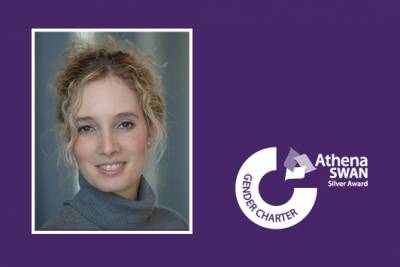Prof Jasmin Fisher is a Professor of Computational Biology at UCL. The Fisher Lab develops state-of-the-art computational models and analysis techniques to study cancer evolution and mechanism

What inspired you to pursue a career in science?
I have always been curious about mechanisms of disease and wanted to peruse a career in which I can help improve patients’ lives. This took me on a trajectory from medicine to biology. I lost my father, other family members and several close friends to cancer and made this the centre of my research.
Did you encounter any challenges because you are a woman?
Not at all! Now seriously, women are often overlooked and intimidated in a male dominated field. It can feel like being a interloper in a boys-only-club. To overcome these challenges you have to be resilient, confident in your own knowledge and abilities and willing to call out chauvinism when it rears its ugly head.
Who are your female role models?
Rosalind Franklin for her pioneering work on the discovery of DNA structure and as a reminder of how women can be overlooked in science. My mum, who was a successful fashion designer who taught me a strong sense of independence and showed me that women can be successful in their own right and don’t have to choose between career and family.
What working achievement or initiative are you most proud of?
Playing a leading role in establishing a new field of research, Executable Biology, and creating a suite of computational tools to investigate mechanisms of disease. I am very proud of being the catalyst to bring together the successful multidisciplinary teams I have had the privilege to work with over the years. Our work went all the way from proof of concept that computer programs can be used to describe biological processes, to gaining new mechanistic insights and more recently to clinical applications in cancer. We are now at the stage where our computational predictions can be translated into clinical trials and that is something I am very excited about – the potential to improve cancer patients outcomes.
What advice would you give younger women in science?
You don’t have to give up being feminine to have a successful career in science.
 Close
Close

